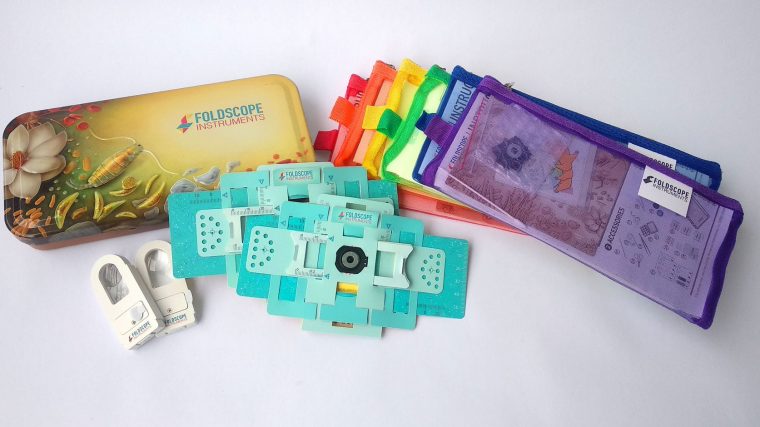A paper microscope in your pocket that you made? Sounds fantastic, but it exists! A week ago I was going through my materials in order to prepare a half day trip to the local Gruenewald forest for a group of children and found a colorful bag with a tag Foldscope. The 2 samples were presented to me ages ago by a friend, and now, !suprise-suprise!, the school opening partner 😀 It’s a very special DIY tool that I would recommend to every science teacher, the paper microscope. This microscope reminded me of the very first simple microscope used by a Dutch scientist Antonie Van Leeuwenhoek in the 17th century, since it was also very simple, had one lens and was handheld. The foldscope magnification is smaller though, 140x compared to 270x of Leeuwenohek’s tool, but should be enough to view cells, protozoa and bacteria. On top of this, it’s a self-made tool, the quality that without any doubt adds a value to the microscope. Obviously, it’s a great fun to assemble the microscope and then to fulfil a real experiment. Moreover, you can do it whenever and wherever you want. It can be always in your pocket for new discoveries! I was happy to find a local German distributor (www.jot-entdecken.de) and ordered several Foldscopes to assemble and test with the group of 8, 9, 10 YOs during my workshop about human cells and going to try it on our samples from the pond we are going to visit tomorrow. Hope to receive it on time though, still no sign of a parcel. Stay tuned! I’ll tell you about the experiment.
You can read a bit more about Foldscope on the website www.foldscope.com.


